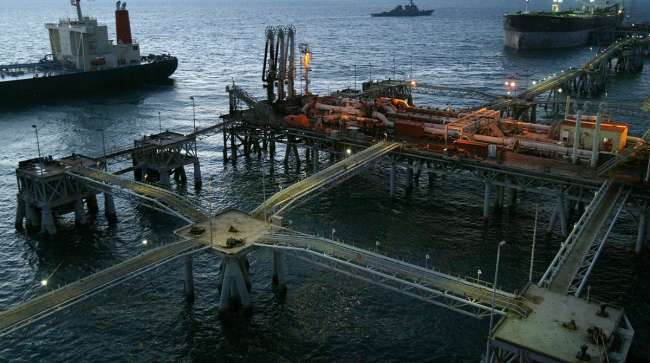Oil Declines as OPEC’s Supply Is Seen at Highest Level This Year

Oil declined after tanker-tracker Petro-Logistics SA said OPEC’s supply in July will be the highest this year.
Futures fell as much as 0.5% in New York, erasing a weekly gain. Supply from OPEC members is set to exceed 33 million barrels a day this month, more than 600,000 barrels a day higher than the first-half average, according to Petro-Logistics. The data could reinforce skepticism about the effectiveness of the Organization of Petroleum Exporting Countries’ production cuts as officials from the group gather for meetings in St. Petersburg, Russia.
Oil remains in a bear market on concern that growing output in the United States, Libya and Nigeria is offsetting other producers’ curbs, meaning stockpiles aren’t shrinking fast enough. The report from Petro-Logistics found that Saudi Arabia, the United Arab Emirates and Nigeria are behind the extra barrels. The latter is exempt from making cuts as it tries to recover from disruption due to theft, sabotage and attacks by rebels.
The findings of Petro-Logistics further weaken “the foundations under the output deal, which is what the market is also saying by sending prices lower,” said Jens Naervig Pedersen, analyst at Danske Bank A/S. “It puts pressure on OPEC before the meeting this weekend.”
Supply Draw
West Texas Intermediate for September delivery was at $46.56 a barrel on the New York Mercantile Exchange, down 36 cents, at 8:39 a.m. local time July 21. Total volume traded was 4% above the 100-day average. The August contract expired July 20 after losing 33 cents to $46.79.
Brent for September settlement fell 0.8% to $48.90 a barrel on the London-based ICE Futures Europe exchange. The contract slipped 40 cents, or 0.8%, to $49.30 on July 20. The global benchmark crude traded at a premium of $2.41 to WTI.
OPEC and its allies are working to pare global stockpiles relative to the five-year average. Saudi Arabia’s crude inventories have reached the lowest level since January 2012 as the world’s biggest oil exporter kept a lid on production and U.S. stockpiles have shown signs of decline. Still, the International Energy Agency said earlier this month that global supplies remain bloated.
Rising supply is a problem, from within and outside the group. This week, OPEC member Ecuador said it would increase its production by year-end to raise revenue. This raises “uncertainty” about the deal, RBC said in a note.
At current production levels, OPEC’s curbs won’t achieve the goal of reducing inventories to average levels by the time they expire in April, according to Bloomberg News calculations using IEA data.
Oil-market and OPEC-related news:
• China’s new proposals for oil storage are positive for imports, BMI Research said.
• Venezuela protests leave two more dead on day of national strike while 173 are detained.
• Venezuela to add diamonds to its international reserves, Central Bank President Ricardo Sanguino said.
• Schlumberger Ltd., the world’s largest oil field-services provider, agreed to buy a controlling stake in Russia’s market leader, Eurasia Drilling Co., after opposition from the nation’s regulators derailed a similar plan two years ago.
With assistance by Heesu Lee




